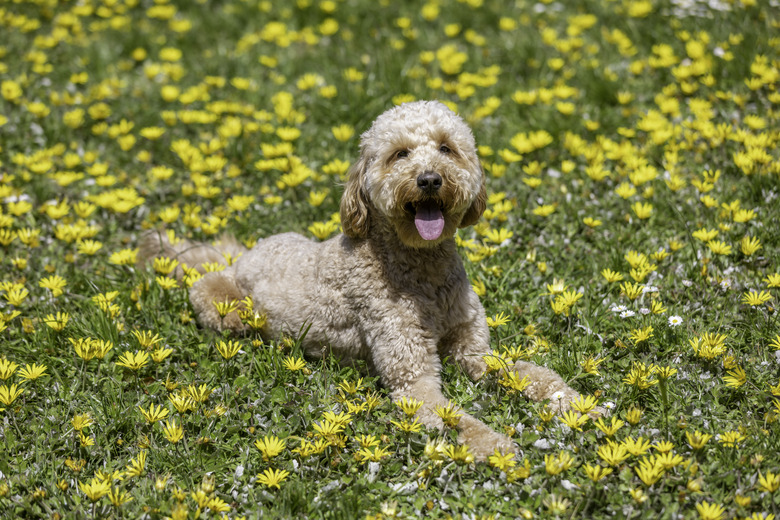Side Effects Of The DA2PP Vaccine For Dogs
Unfortunately, recent misinformation circulating about vaccines is causing some pet parents to worry about vaccinating their dogs. Clearly, we want to do what's right for our best friends. Therefore, understanding the benefits of vaccines and how they function is essential to making safe and informed decisions.
Vaccines contain dead or weakened microbes of the disease they're meant to prevent. Our annual flu vaccine, for example, contains microbes of the flu. When injected into the body, our immune system attacks the microbes and creates a defense system designed to prevent us from getting sick from the flu. The same goes for dog vaccines.
What is the DA2PP vaccine?
What is the DA2PP vaccine?
The DA2PP canine vaccine is a combination of several different microbes. It's designed to prevent four different diseases. The D stands for distemper. A2 is canine adenovirus type 2. The first P is for canine parvovirus, and the second P is for parainfluenza.
DA2PP is considered a core vaccine for dogs, which means all dogs should be vaccinated against these pathogens. Beginning at 6 to 8 weeks of age, dogs should receive vaccines every three to four weeks until they are at least 16 weeks old. After one year, a booster should be given, and then your dog should be boosted every three years after that. Veterinary clinics will keep records to remind you about your vaccination schedule.
Concerns and controversies about vaccinating aside, the DA2PP vaccine is considered by veterinarians to be a necessary core vaccine. Core vaccines are the ones that are required for all dogs because they provide protection against diseases that are easy to get and have significant mortality rates. Note that most pet boarding facilities and doggie day cares require these vaccinations. And, you shouldn't socialize your young dogs or take them to dog parks until they have been fully vaccinated.
What diseases does the DA2PP vaccine protect against?
What diseases does the DA2PP vaccine protect against?
The DA2PP is a combination vaccine given to dogs because it helps protects them from three potentially life-threatening diseases and one canine respiratory disease:
- Canine distemper virus (CDV)
- Adenovirus type 2 (CAV)
- Canine parvovirus (PV)
- Canine parainfluenza virus (CPIV)
Distemper and adenovirus type 2
Distemper is a debilitating disease that has no cure. If your dog gets it, the only treatment is supportive care, including hospitalization, IV fluids, and medications to help the body fight the illness. If your dog is an adult, they're more likely to recover than if they are a puppy. The death rate for puppies is 80 percent, and for adult dogs, it's 50 percent. Distemper symptoms begin with a nasty eye discharge and can progress to scary neurological symptoms, such as seizures.
Canine adenovirus type 2 also has no cure. Symptoms usually begin with a heavy discharge from the eyes and nose and can progress to internal hemorrhaging. Ten to 30 percent of dogs who get adenovirus type 2 die from it.
Canine parvovirus and parainfluenza
The canine parvovirus is a highly contagious and terribly resilient pathogen. It can live outdoors for months just waiting for your dog to come into contact with it. It infects the digestive system. One of the first signs is bloody diarrhea.
Like canine distemper and adenovirus type 2, there is no cure for parvo. Veterinarians treat the symptoms with antibiotics to prevent infections and with IV fluids to help with dehydration. An unvaccinated dog can die from the canine parvovirus.
The parainfluenza part of the DA2PP vaccine prevents canine parainfluenza, a mild to moderate upper respiratory infection. Dogs rarely die of parainfluenza. Dogs rarely die of parainfluenza, but it is part of an infectious respiratory disease complex that includes bacteria such as Bordetella, which causes kennel cough.
Side effects of DA2PP vaccination
Side effects of DA2PP vaccination
Minor and short-lived side effects from the DA2PP vaccine are swelling where the shot was given, a slight fever, loss of appetite, soreness, and short-term lethargy. All of these side effects should clear up within 24 to 48 hours. If they don't, see your veterinarian.
Rare but more serious vaccine reactions can arise. These include swelling of your dog's neck, muzzle, face, or eyes; severe coughing; itchy and/or bumpy skin (multiple bumps, not just the one at the injection site); persistent vomiting; or diarrhea. If any of these occur, take your dog to the veterinarian as quickly as possible.
These serious side effects could mean that your dog is allergic to the vaccine. Again, this is rare, but if it happens, it's a full-blown emergency. Get your dog to your veterinarian or the nearest pet emergency clinic. Unfortunately, there is no way to predict an allergic reaction.
The bottom line
The bottom line
While it's important to weigh benefits and risks in any situation, it's widely accepted that the benefits of vaccines outweigh the risks. Vaccination not only protects individual dogs from infectious disease but also protects the general dog population. The disease the vaccination prevents is rarely transmitted in a population where the majority of individuals are vaccinated — a benefit commonly called herd immunity. Each of us has to decide what's best for our pet's health. Most responsible pet guardians opt to protect their dogs from these completely avoidable diseases by getting them vaccinated, and this includes the DA2PP combination vaccine.
References
- American Kennel Club: What Every Puppy Owner Needs to Know About Parvo in Puppies
- UC Davis Veterinary Medicine: Vaccination Guidelines for Dogs and Cats
- ASPCA: Vaccinations for Your Pet
- American Veterinary Medical Association: What to Expect After Your Pet's Vaccination
- Cornell Wildlife Health Lab: Canine Distemper


